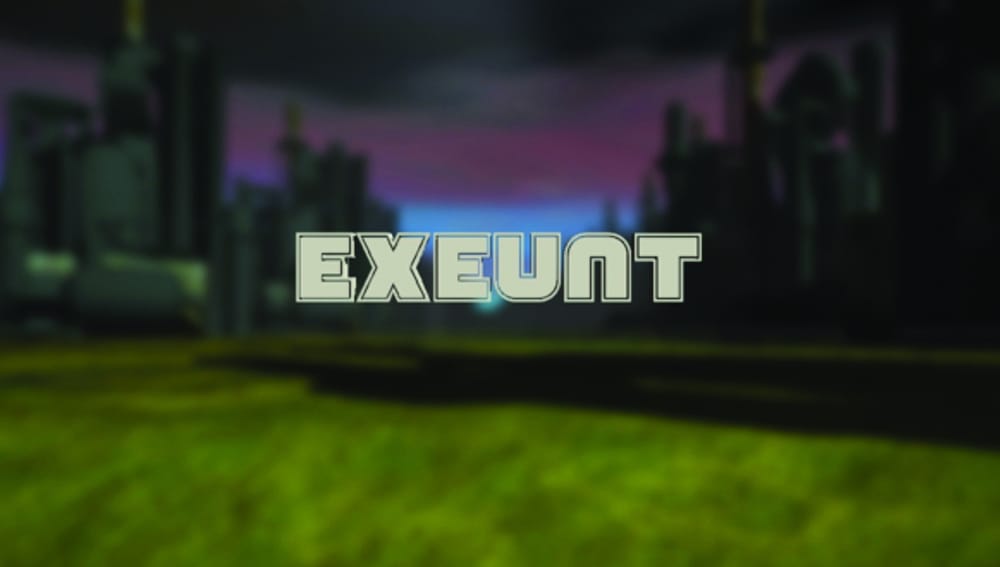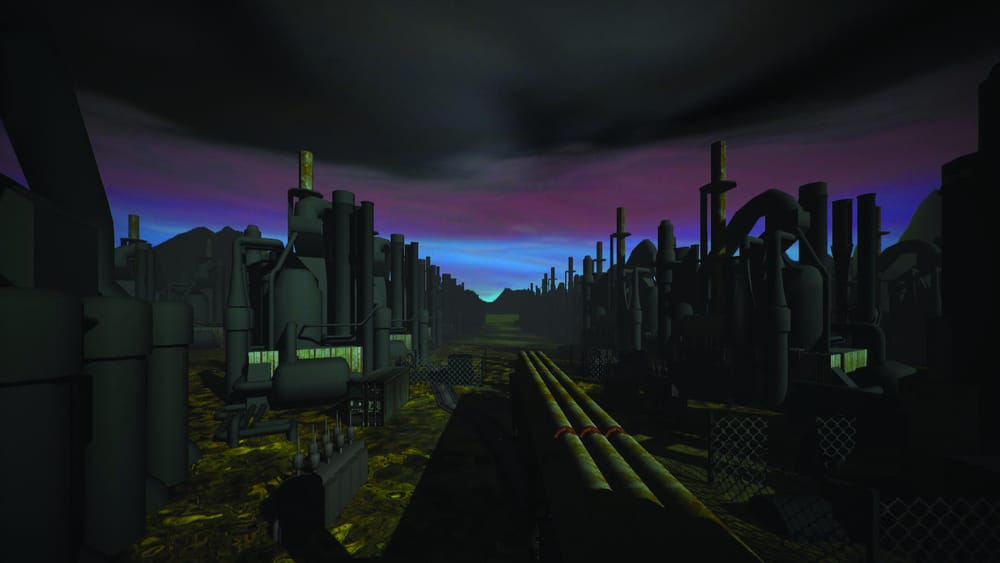The Games Designer - Hugh Osborn

Eleanor - Can you tell us a little bit about the game you’re making at the moment?
Hugh - Exeunt is my first project out of uni. It’s a fast-paced arcade style game with a dark, dystrophic twist. The player controls a character running through an oppressive landscape. By changing into different “animal forms”, the character has to avoid obstacles at increase speed.
E - What was it that made you want to go into the computer games industry?
H - I’ve always played games, but when I was 14, I played two games for the first time; Half Life by Valve Software and Deus Ex by Ion Storm. I’d never experienced anything like them. My only thought was, “How can I make these?” Later I realised that, not only was this something I could do, it was something I could make a living from.
To begin with, I enjoyed the programming side of things. Writing lines of code to produce colours, effects and action on the screen is something that continues to give me great joy and satisfaction. At school, I loved using the things I was learning in maths classes to produce shadows, reflections and animations. My perception of games has matured since then, or I should say, become more complex.
I appreciate games for their artistic/conceptual value a lot more than I used to. As well as making a game that looks cool and is fun to play it’s important to me that a game says something. I spend a lot of time thinking about what objects in the game mean and what they say to the player as well as whether they look good or not. For example with Exeunt, the oppressive world is meant to mirror our own. The obstacles and buildings represent moral issues we have to deal with in our daily lives.
Often the way we deal with them is to dodge around them!

E - What are your impressions of the gaming scene, and the indie game scene in particular?
H - It certainly makes it more socially acceptable. Seriously though, I think it’s fantastic that games like Call of Duty and Battlefield have become such beloved franchises. I generally try to avoid comparing the film industry to the games industry but I think it’s important that these “blockbusters” are successful because the money made helps to legitimise the industry in the eyes of the public.
One of the problems with games companies getting so large is that, as a low level employee, one can feel like a tiny cog in a huge machine. Often people who choose to go into this industry do so because they like the mixture of problem solving (engineering) and creativity. This, I think, is one of the main reasons why so many people choose to take the risk to start their own independent games studio. Of course, it wouldn’t be possible if the games audience hadn’t matured to a point where guns and explosions isn’t the only worthwhile subject matter. With the rise of the smart phone, people are willing to pay a little money for something that is perhaps more experimental or daring.
E - You’re a one man team aren’t you? Is that sometimes difficult?
H - Currently, it’s just me but I hope the company will grow. I work at the computer in my bedroom and this brings up a number of problems when it comes to productivity (No, lads, not that). It’s difficult to make yourself get up in the morning when there’s nobody expecting you to be in to work on time. Also, a cheeky peek at Facebook or iPlayer can turn into an hour without working when there’s no boss checking up on you.
But you can flip that on its head, right? No need to get up if I don’t want to and no need to work every second of the day. When it’s your own business and you love what you do, it’s not that tough to keep going. One other thing I’ll say is that the indie games scene in London is staggeringly good. There are socials and seminars and design weekends happening all the time. Everyone is extremely supportive and motivation is never hard to find.
E - Is there anything you wish you’d done differently up to this point?
H - Nothing has gone catastrophically wrong so far. Trouble is, I won’t know until the end. Production seems just about on schedule but I won’t know if the schedule is correct until about a month before launch. I’m really looking forward to the business and marketing requirements. I have no experience with any of that and the learning curve will be sharp and unforgiving, I expect.
One thing I’ve learned is that you should always pay people. During uni I interned at a bunch of games studios for little or no pay most of the time. Since it happened to me, I thought that I could get away with paying someone nothing for a couple of jobs that needed doing but it ended up being a disaster and it was my fault for a complete lack of professionalism. Still, I wouldn’t be doing what I’m doing if it wasn’t exciting and I wasn’t learning anything.

E - What other things would you suggest to people who wanted to do a similar kind of thing?
H - Don’t be afraid to spend money on your business. If you need a new monitor, get one and make sure it’s good. Don’t feel guilty that it’ll also let you watch HD movies. That’s not the reason you need it. You can’t expect people to take you seriously if you don’t.
Self discipline is extremely important. If you can’t make yourself get up in the morning, you’re going to have problems. Don’t forget though, that you’re your own boss and you chose to start your company precisely so you don’t have to do what the boss tells you. If you can afford to take the morning off, go for it!
One last thing; take as many risks as possible. You’re out of uni, no mortgage, no kids (probably), still living in cheap accommodation. You have less to lose than you will at any other point in your entire life. Make the most of it! Oh and buy some business cards.
E - Any plans for once Exeunt is finished?
H - Retire.




